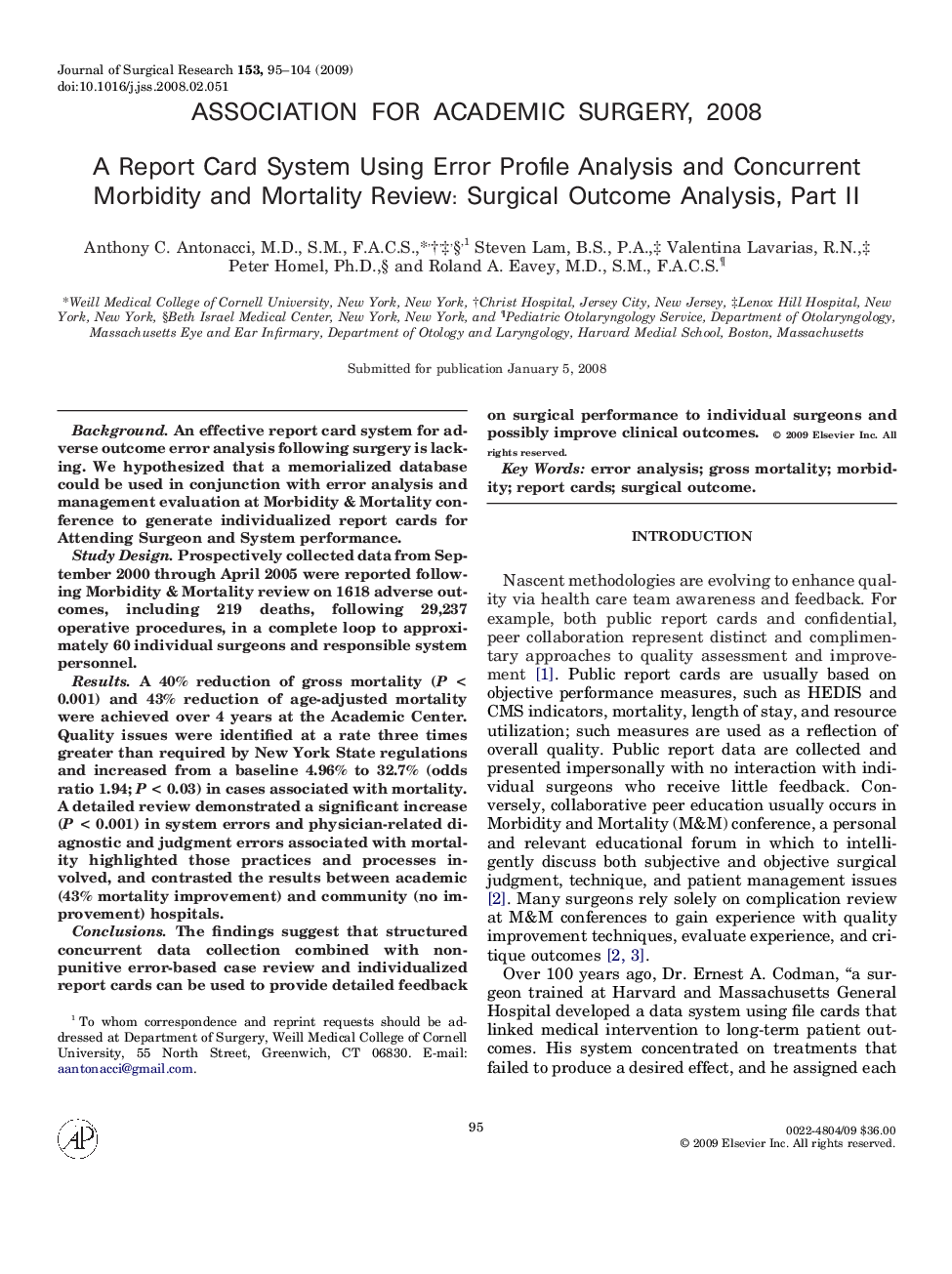| Article ID | Journal | Published Year | Pages | File Type |
|---|---|---|---|---|
| 4303954 | Journal of Surgical Research | 2009 | 10 Pages |
BackgroundAn effective report card system for adverse outcome error analysis following surgery is lacking. We hypothesized that a memorialized database could be used in conjunction with error analysis and management evaluation at Morbidity & Mortality conference to generate individualized report cards for Attending Surgeon and System performance.Study DesignProspectively collected data from September 2000 through April 2005 were reported following Morbidity & Mortality review on 1618 adverse outcomes, including 219 deaths, following 29,237 operative procedures, in a complete loop to approximately 60 individual surgeons and responsible system personnel.ResultsA 40% reduction of gross mortality (P < 0.001) and 43% reduction of age-adjusted mortality were achieved over 4 years at the Academic Center. Quality issues were identified at a rate three times greater than required by New York State regulations and increased from a baseline 4.96% to 32.7% (odds ratio 1.94; P < 0.03) in cases associated with mortality. A detailed review demonstrated a significant increase (P < 0.001) in system errors and physician-related diagnostic and judgment errors associated with mortality highlighted those practices and processes involved, and contrasted the results between academic (43% mortality improvement) and community (no improvement) hospitals.ConclusionsThe findings suggest that structured concurrent data collection combined with non-punitive error-based case review and individualized report cards can be used to provide detailed feedback on surgical performance to individual surgeons and possibly improve clinical outcomes.
